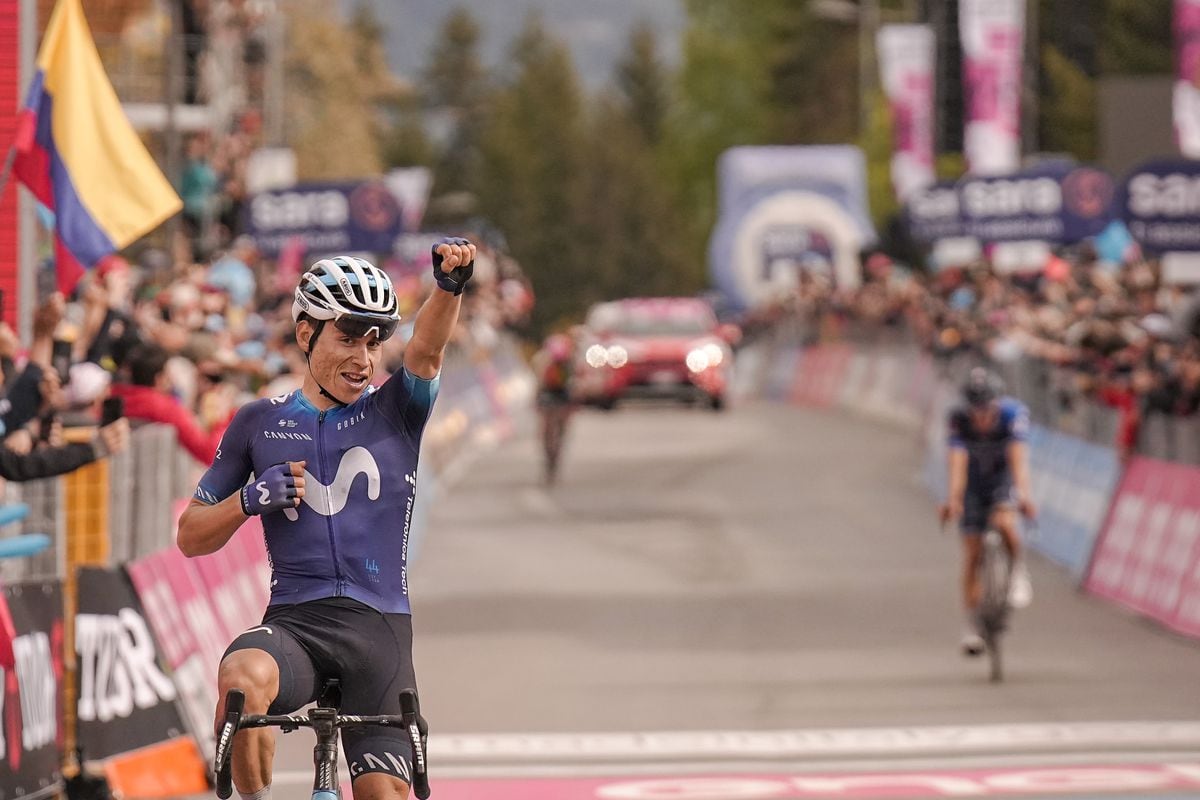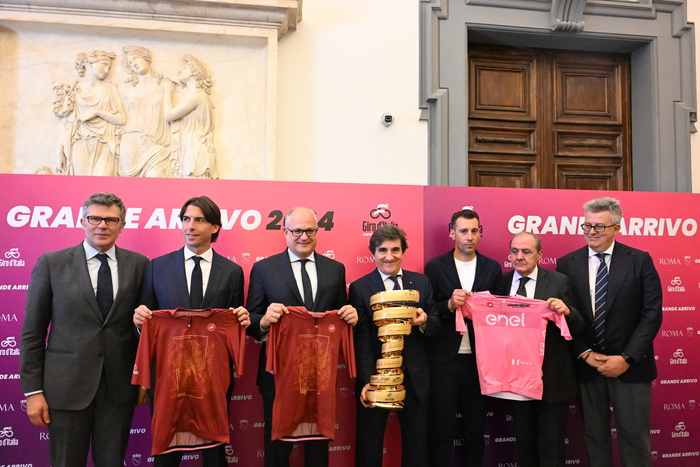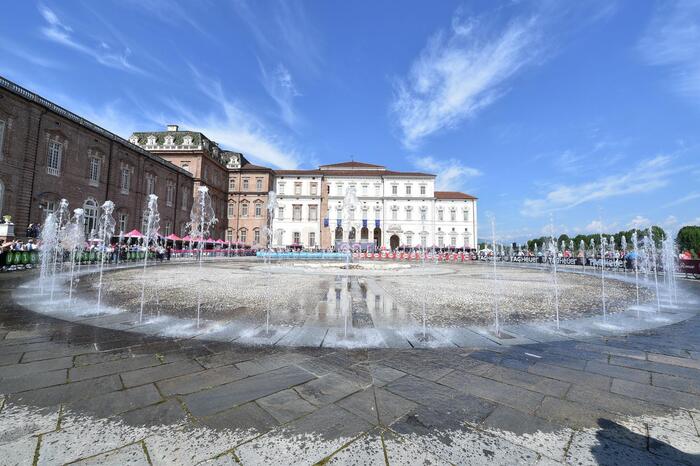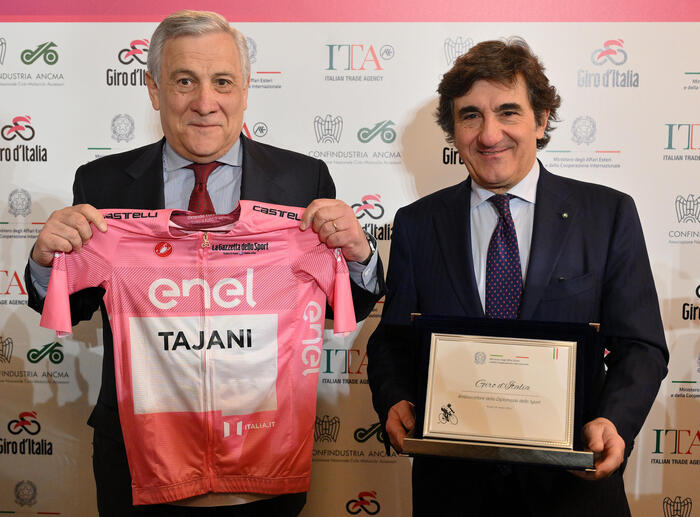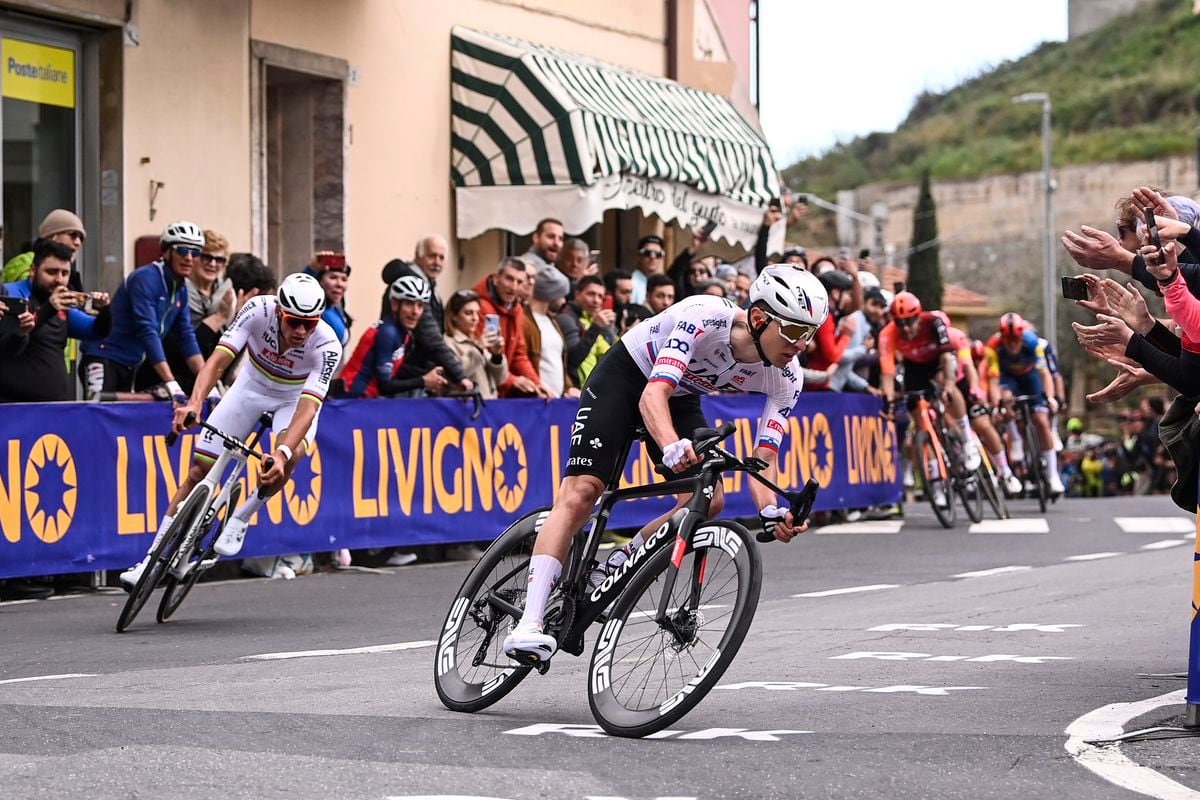Einer Rubio raises his fist to win in Crans Montana against a sunken Pinot.Marco Alpozzi/LaPresse (LAPRESSE)
Only the madness of Thibaut Pinot, his inevitable defeat at the top of Crans Montana, gives meaning to one more sad day of the saddest Giro in which the only joy is lived, thanks to the victory of Einer Rubio, Movistar and Colombia.
Shy as the sun that barely shines and does not warm the Swiss mountains, walls of snow at the top of the Croix de Coeur, the favorites of the Giro travel calmly to the tran tran – defensive rhythm, they say in the jargon, marked by heavy rollers, or wounded, of the Ineos of the leader Geraint Thomas – through the valley of Father Rhone, That up there is born, the 74 kilometers to which the great alpine stage has been reduced by decision of the riders (90% of the peloton voted for the cut), who feared a rain that did not fall, a cold that they did not suffer.
Athletes feel empowered. Finally. They are no longer slaves. Artists without rights, only to entertain, to excite, to give meaning to the whims of the organizers, believe themselves liberated when they are nothing more than victims of the contradictions of their trade, professionals of an ancient sport in a postmodern world. Cyclists want to feel like other athletes, to be able to talk about technology, the danger and speed of tubeless tires, so abrupt their braking, watts, nutritional control, calculation, and the value of their champions, their taste for adventure. The fans, who whistle and boo from the cold ditches to the cyclists who travel by bus two thirds of the stage, and the Great Saint Bernard, up and down, speak of romanticism and epic, of the sublimation of suffering, that the times when one ran for hunger, rage or love should not die, that only without breaking its roots can cycling survive. And they stand up, and listen, when Eddy Merckx, the Cannibal who won his first Giro, already in 1968, speaks, braving a snowy day in the Dolomites, wool jersey soaked and rolled up, the voice of memory. "If rain and wind are a problem, you'd better stay at home playing cards," Merckx told the Giro riders. "Cycling is not made for you."
Crans Montana offered some waiting, some attacking and some never giving up.
Watch the last km of stage 13! 🔻
tag.
A Crans Montana c'è chi aspetta, chi attacca e chi non molla.
Guarda l'ultimo km della tappa 13!🔻 @expo2030#Giro #GirodItalia @Einerrubio1 @Movistar_Team pic.twitter.com/0X4hazXlih
— Giro d'Italia (@giroditalia) May 19, 2023
"We, Ineos, wanted to be with the majority. Many riders have fallen ill [when the Giro still has eight stages left, and the hardest, 41 of the 176 cyclists who started it on May 6 have already abandoned]. Another day of more than five hours in the rain, in the cold, would not have been ideal," says the leader, Thomas. "I know that in the end the day has not been so bad weather, but we based the day before on the weather forecasts. It's always hard to get it right." Only a symbolic acceleration from Damiano Caruso, launched by his Colombian teammate Santiago Buitrago, two kilometers from the finish, makes Thomas and Roglic lift their saddle asses and accelerate their hearts.
It is the anniversary of the death of Luis Ocaña, 29 years ago, god of stubbornness and nonsense, the great anti-Merckx of cycling, and before the false start, at 10 in the morning, those responsible for the Eolo, the team that Alberto Contador and Ivan Basso have created halfway, two champions of nothing ago, They announce with great sorrow the death of their 25-year-old runner Arturo Grávalos, who two years ago underwent a first operation to remove a brain tumor that reproduced and ended his strength, but never his will to live, with his spirit. His struggle, that of the cyclist from Cuenca against everyone, that of Grávalos for life, is reflected in the Pinot stage, the cyclist who did not want to be a star, who feels strange in a conformist world and who is unhinged in the valley and on the last climb, 12 kilometers, his two escape companions, Rubio and the Ecuadorian Jefferson Cepeda. Pinot, who is the strongest, the fastest, and sets the pace, does not understand that the two Andean cyclists do not give him relays. He attacks them again and again, reaches a few meters of advantage, and soon sees them again to his wheel, like someone who smokes. And so the Frenchman wears out, who wants to leave the memory of his deeds. Didn't they want romanticism? Rage blinds Pinot. It is the struggle of stubbornness and unbridled heart against lucidity, pure unreason against tactical reason. "I won't win, maybe," he tells Cepeda at one point, waving at him, "but I'm sure you won't either." The third, Rubio, the smartest, won. Let them argue. He manages to be forgotten. It surprises them in the last meters. It's the Giro of diversity, too: 12 different riders from 11 different teams (only Evenepoel's Soudal and Healy and Cort's EF have repeated) have won stages.
Rubio, 25, is a cyclist due to hunger, to get out of the poverty of peasant life in Colombia. He was a bricklayer in Paipa, in Boyacá, and emigrated to Italy at the age of 19. He became a cyclist at the Esteban Chaves Foundation School in Bogotá, and in Italy he grew and grew to become one of the best climbers in the country's under-23 races. In 2018 he won an uphill stage, a good alpine pass on the border with Slovenia, ahead of Pogacar; in 2019, he finished second in the Giro U23. In 2020, at age 21, he reached the WorldTour, his goal. "I went to Italy alone," says the runner. "An Italian manager, Gino Ferri, asked me for the data of a stress test and since they were good, he took me in 2017 to a team in southern Italy, in Benevento, near Naples. At first I had a very hard time, but I managed to adapt. I lived in the house of Donato Polvere, the team principal, and his wife. They are my second parents. And my girlfriend is Italian."
A few years ago, his father, Libardo, told the story of his son, winner of a stage in Crans Montana, in the well-kept Swiss mountains, and his vineyards: "We are no longer farmers, now we work in recycling in Bogotá. We grew potatoes in San Pedro de Iguaque, at 3,000 meters of altitude through Villa de Leyva, Arcabuco and Cómbita, also the lands of Nairo, but eight years ago the price of potatoes began to fall, we had a bad harvest and we could not take it anymore. We sold the cow and went down to Bogotá. The countryside is dying and the government does nothing, quietly lets the peasant culture end. Our life. Ah, but we didn't sell the land. We have a cabin there and when Einer quits cycling and comes back, we will all go back there."
Like Rubio, some 60 Colombian cyclists have emigrated very young to Italy and Spain, above all, in search of a future in the peloton.
You can follow EL PAÍS Deportes on Facebook and Twitter, or sign up here to receive our weekly newsletter.

